
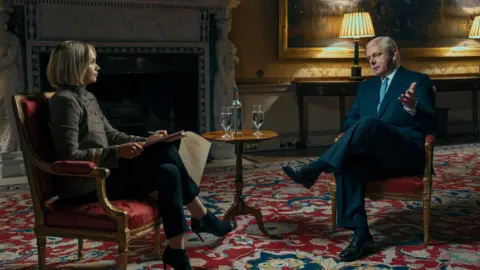 Amazon/ MGM
Amazon/ MGM
A Very Royal Scandal shows an angry and sweary Prince Andrew
When Michael Sheen was trying to find a way into portraying the Duke of York, he came across a photo of Prince Andrew as a returning hero from the Falklands War - with a rose clamped between his teeth.
Grinning, self-satisfied, the apple of his mother’s eye, a slightly ridiculous royal Romeo, this was the actor’s starting point for depicting the prince in his interview with BBC Two's Newsnight programme - and imagining the huge scale of his fall from grace.
Sheen’s remarkable performance dominates this compelling three-part Amazon film, A Very Royal Scandal, as he captures a prince angry and disbelieving at his collapsing status.
“I’m the son of the sovereign - if I want to go on telly and defend myself, I will,” he bellows, but with the addition of multiple strong swear words, in a way few royals have been portrayed before.

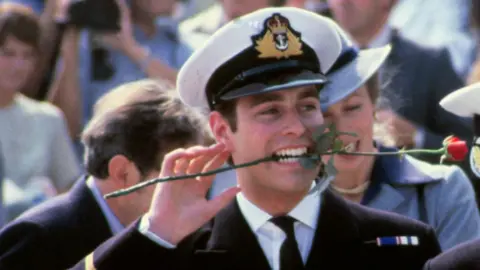 Getty Images
Getty Images
The actor says his starting point was this image of Prince Andrew after the Falklands War
It is a no-holds-barred account that makes Netflix's The Crown look like a rather timid costume drama.
Has a royal ever been depicted swearing so much - or palace life as so poisonous?
Sheen is famous for how he inhabits his characters – and his version of Prince Andrew is a volatile mix of vanity, vulnerability and a self-destructive lack of self-awareness, as his gilded royal life crumbles after the disastrous interview.
He is a sweary, pompous and then needy figure, unaware of how much he is being exposed by his TV interrogator, Emily Maitlis, played by Ruth Wilson.
The interview itself is often described as a “car crash” - but in this version, the prince's reputation is more like roadkill.

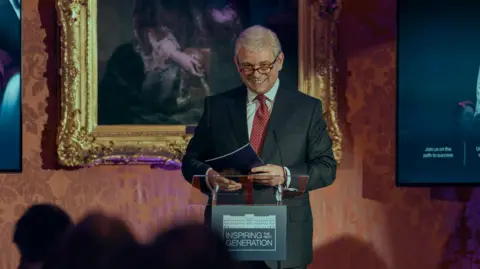 Amazon/ MGM
Amazon/ MGM
Michael Sheen depicts Prince Andrew at an event at Buckingham Palace
Inevitably, there will be comparisons with the recent Netflix film Scoop, about the same 2019 interview.
Rufus Sewell said his interpretation of the prince owed something to David Brent, the deluded manager from BBC Two's The Office sitcom.
In this Amazon Prime Video version, Sheen's Prince Andrew is a more complex figure, self-seeking, emotionally deaf, ambitious, loyal to his own immediate family, distrustful of palace officials and with a desperate need for approval.
It is a performance where Richard III meets Alan Partridge.
When he hears sex offender Jeffrey Epstein has died in prison, the prince's reaction is to ask: “Is this good for me or bad?”
And there’s a relentless tension between him and his brother, the then Prince of Wales.
“Calls me a mummy’s boy, he’s the mummy’s boy,” Prince Andrew screams, with plenty of very strong swearing added, after an angry phone call.

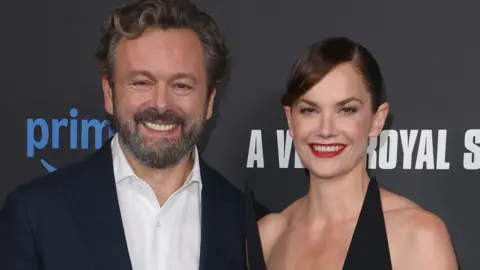 Getty Images
Getty Images
Michael Sheen and Ruth Wilson at a launch event for the film, in London
It is not at all flattering to the monarchy.
Prince Andrew is portrayed as casually rude to servants - and palace officials mull over the royals’ lack of empathy: “They’ve never been late for a train - because the train waits for them.”
Although the recreated Newsnight interview is the centrepiece of the film, perhaps the most pivotal moment is a scene in the first episode, where the prince meets Epstein in New York.
It is another excruciating interview, with an embarrassed Prince Andrew needing money and a tough, exploitative Epstein, played by John Hopkins, making him wriggle on his financial hook.
Sheen shows the prince as out of his depth in front of such malevolence.
And this terrible association with Epstein plays out through the film, with Prince Andrew protesting his innocence as the questions and accusations encircle him, until he is hiding from lawyers trying to serve court papers.

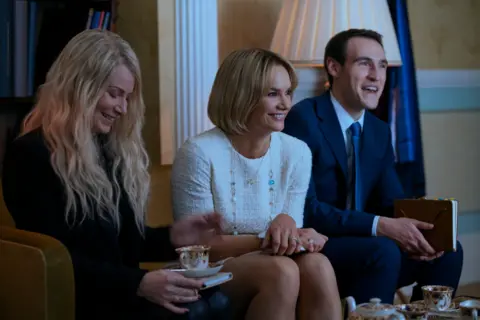 Amazon/ MGM
Amazon/ MGM
The Newsnight team met the prince ahead of the interview
This is a much more textured and ultimately more engaging account of events than the Netflix film.
It shows the impact on those around Prince Andrew, including his ex-wife, the Duchess of York, and their daughters, Princess Beatrice and Princess Eugenie.
Their loyalty to him is depicted as being from a real family rather than the Royal Family.
Prince Andrew’s private secretary, Amanda Thirsk, beautifully played by Joanna Scanlan, is still defending him even after she has lost her job in the wake of the Newsnight interview.
And their relationship, a mix of co-dependency and scapegoating, has echoes of Alan Partridge and his assistant, Lynn.

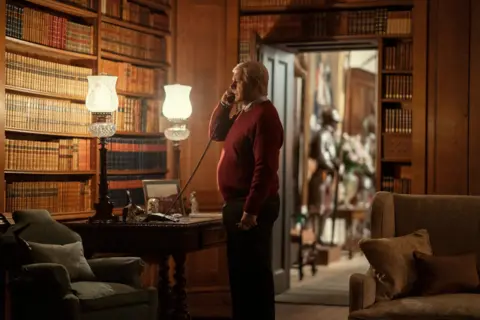 Amazon/ MGM
Amazon/ MGM
Prince Andrew is depicted gradually being cornered by more and more questions
The prince's downfall comes with his calamitous TV interview.
And this film suggests some of the most famous moments - such as his lines on not being able to sweat and going to a Pizza Express in Woking, Surrey, nearly ended up being cut in the editing.
But despite the awards and plaudits that follow, Maitlis is seen as having her own self-doubts.
She raises the question of what has happened to Epstein’s victims and points to the lack of resolution in any legal proceedings.
Out-of-court settlement
At the heart of this drama is an ambiguity.
The civil case in the US between Prince Andrew and Virginia Giuffre ended in an out-of-court settlement, with the prince strongly rejecting any accusations of wrongdoing.
But neither side had their day in court.
And the film shows Prince Andrew wanting to do the Newsnight interview because he thinks it might mean checking his claim the photograph of him and Ms Giuffre might have been faked.
The other big unknown for the viewer is how much is fact and how much fiction.
Did Prince Andrew really call his private secretary “Fatty” and race her across the garden?
Did Elizabeth II’s private secretary, the urbane Sir Edward Young, really say things such as: “We’ll be shovelling more shit than Dyno-Rod.”
The film comes with the disclaimer: “This drama is based on real events and individuals. Some scenes have been fictionalised and adapted for dramatic purposes.”
Publicly brutal
It is not a documentary and the storytelling and pace of a drama means changes to the sequence of events.
For instance, in the film, Prince Andrew is told Covid is to be used as a face-saving excuse for him not to be at the late Queen’s Platinum Jubilee.
In reality, Covid was indeed given as an explanation for why he missed a Jubilee service.
But a month before, the Palace had been quite open in a press briefing that the prince would not be on the Buckingham Palace balcony as he was no longer a working royal.
The suggestion of surreptitiousness works as drama - but in reality, his exclusion was even more publicly brutal.
But such powerful dramas can have a habit of overwriting history - and Sheen’s performance could change forever how Prince Andrew will be remembered.
A Very Royal Scandal, Prime Video, broadcasts in three episodes from 19 September

 Movie
Movie 3 months ago
93
3 months ago
93 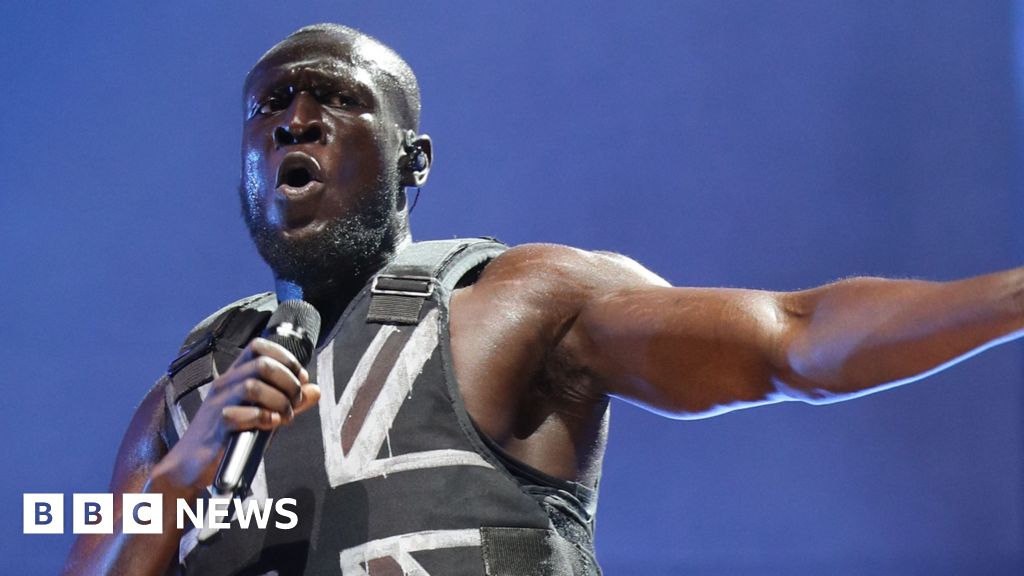
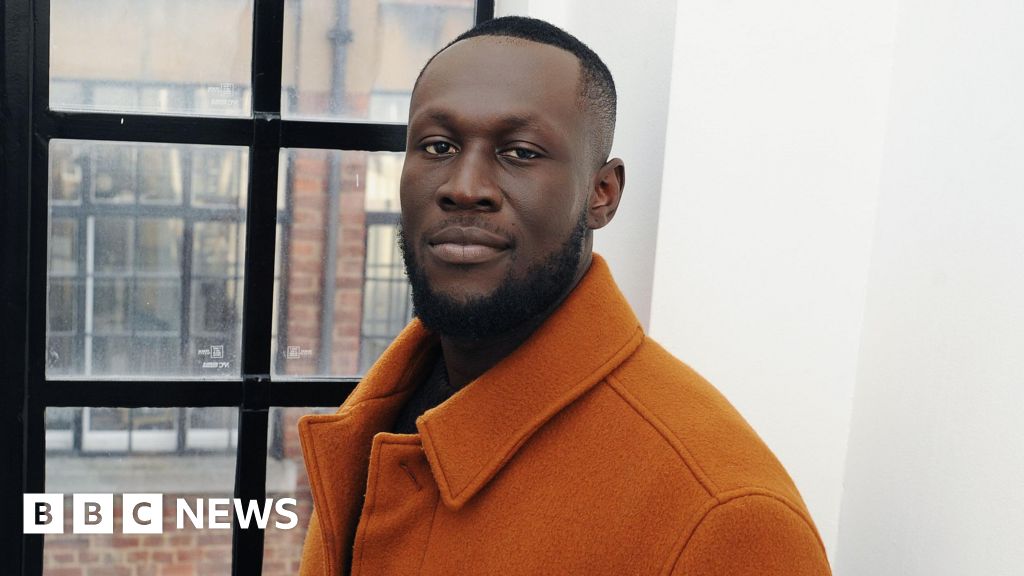

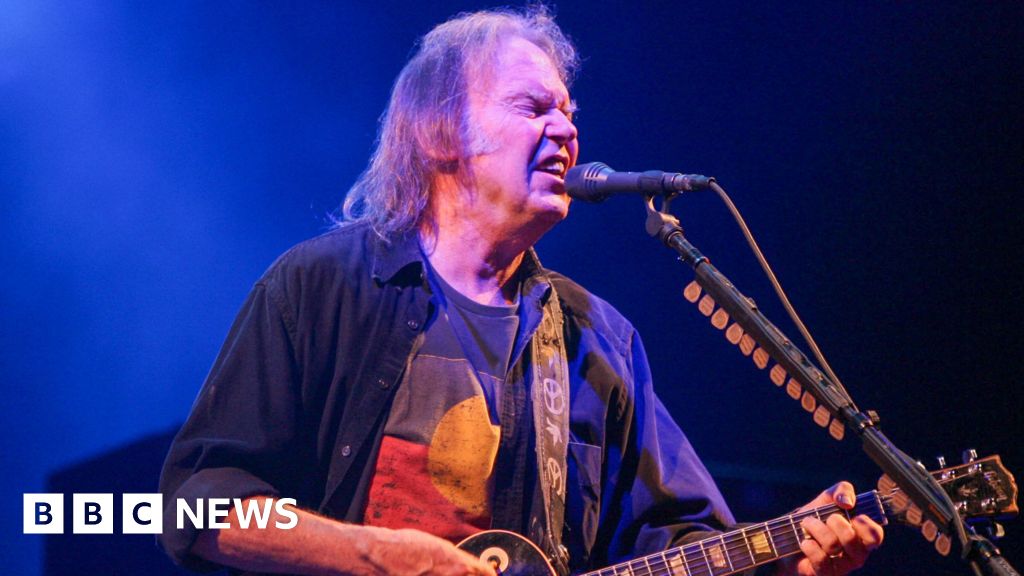
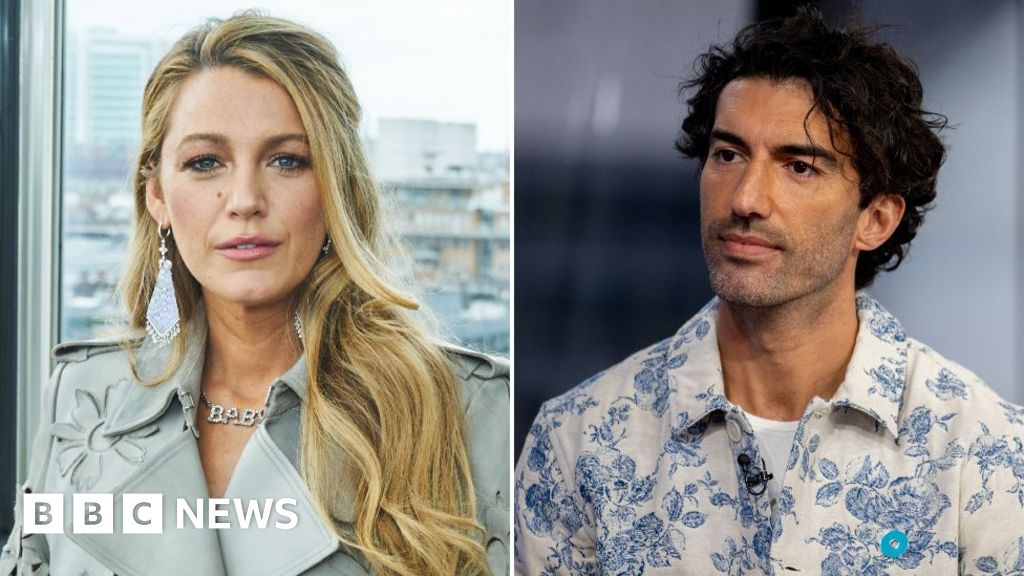
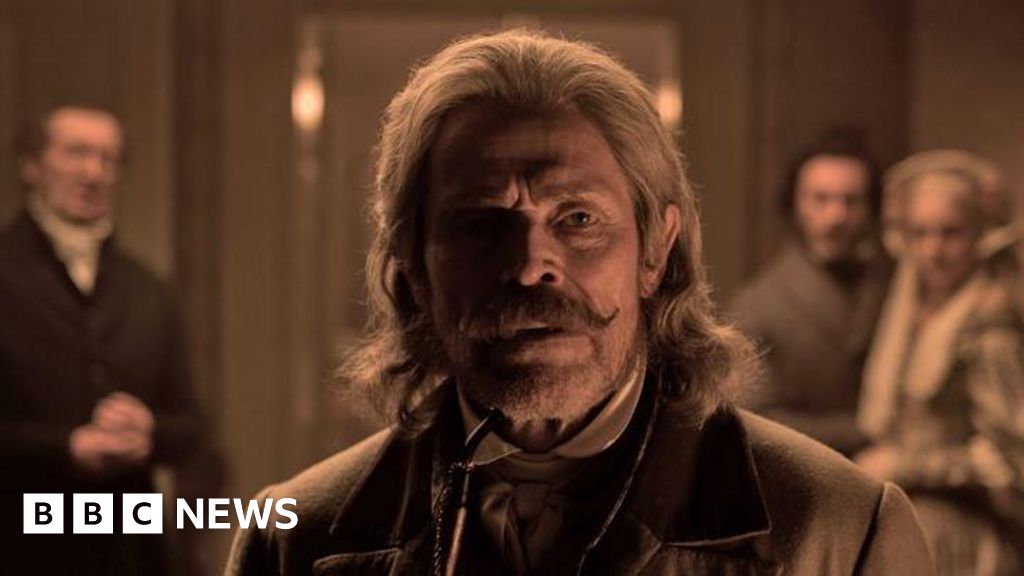

![Presidents Day Weekend Car Sales [2021 Edition] Presidents Day Weekend Car Sales [2021 Edition]](https://www.findthebestcarprice.com/wp-content/uploads/Presidents-Day-Weekend-car-sales.jpg)



 English (United States)
English (United States)